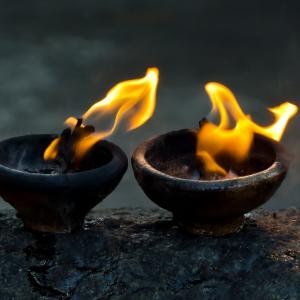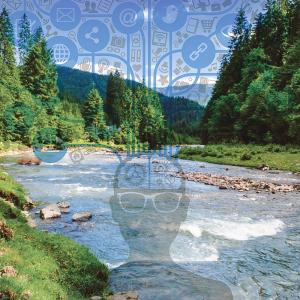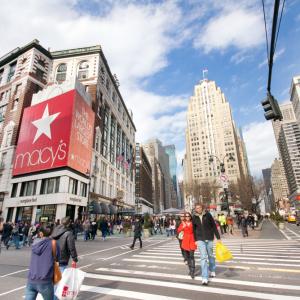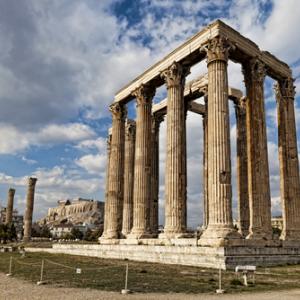Posts By This Author
Social Media and the Shepherd
This year, some have given up Facebook for Lent. Others joined the “National Day of Unplugging” on March 7-8, putting away their phones, tablets, and laptops for a 24-hour digital Sabbath designed to slow people down in an increasingly hectic world.
According to the National Day of Unplugging website, people unplugged in order to dance, sleep, write, play, reflect, relax, reset, tune in, chill out, stay sane, and be more connected.
But wait a second — be more connected? That seems odd, since the promise of social media is that it will strengthen connections. Facebook links us instantly to hundreds of friends, family members, co-workers, and neighbors. Twitter enables us to follow people and collect followers of our own. LinkedIn links us to colleagues through an enormous professional network.
Social media seems to be all about connections. But its links have serious limitations.
On Scripture: The Death of Thanksgiving (Colossians 1:11-20)
Macy's decided to open its doors to shoppers on Thanksgiving Day at 8:00 p.m. Time magazine reports that people are denouncing the move as “greedy, misguided, and unfair to the employees being forced to work on a day traditionally reserved for family.”So how is Thanksgiving doing? Is it deceased, or has its death been greatly exaggerated?
The apostle Paul must have wondered about this when he wrote his letter to the Colossians, a group of Christians living along a main roadway in Asia Minor — what is now modern Turkey. They were pulled between the values of their faith and the values of their culture, much as we are today. Paul warned them, “See to it that no one takes you captive through philosophy and empty deceit, according to human tradition, according to the elemental spirits of the universe, and not according to Christ” (Colossians 2:8).
These words ring true today, don’t they? We know the philosophy of trying to spend ourselves out of economic troubles. The empty deceit of a sales pitch. The human tradition of making the holidays an orgy of consumption. The elemental spirits of the universe that lure us away from Jesus Christ.
Paul asked the Colossians, and he asks us, “Why do you live as if you still belonged to the world?” (2:20). It’s a good question, one that we should ask ourselves on Thanksgiving Day, and every day.
Memorial Day: From Suffering to Hope

Photo via Sergieiev / Shutterstock
Memorial Day is a day to remember. A solemn holiday, it reminds us of the men and women who have died serving our country. Wreath-laying ceremonies and concerts fill the weekend, along with the placing of 250,000 American flags on the graves of Arlington National Cemetery.
Decorating graves is the oldest of Memorial Day traditions. In fact, the holiday was originally called Decoration Day and honored the soldiers who died during the Civil War. Flowers were placed on graves every year on May 30, and after World War I the holiday expanded to include soldiers who died in any war. In 1971, it was moved to the last Monday in May to create a three-day Memorial Day Weekend.
And that, writes Everett Salyer of HEAVEmedia, “is when all hell broke loose.” For many Americans, the holiday became a celebratory weekend filled with grilling meat, drinking beer, splashing in pools, and watching stock car races.
The Religious Roots of the Olympics
When the Summer Olympics opened in London, there was a version of a religious ritual in the Olympic oath, procession of athletes and lighting of the flame. This was no accident because the modern Olympics have religious roots, though they appear to have largely secular fruits.
I'm reminded of this fact because it was in London in 1908 that Anglican Bishop Ethelbert Talbot first said, "The most important thing in these Olympics is not so much winning as taking part" — a phrase that became part of the Olympic creed. He was following in the footsteps of the Rev. Henri Didon, a Catholic priest who gets credit for the official Olympic motto "citius, altius, fortius" (faster, higher, stronger).
The founder of the modern Olympics, Baron Pierre de Coubertin, was educated by Jesuits. "The first essential characteristic of the Olympics, both ancient as well as modern, is to be a religion … above and outside the churches," he said. He was influenced by proponents of "muscular Christianity," who turned away from traditional Christian contempt for the body and used sports as a method of strengthening faith and morality.
Muscular Christianity became popular in Victorian England and spread to the U.S., where it shaped the programs of the YMCA and Boy Scouts of America, as well as church sports leagues. Although it declined in mainline Protestantism in the 20th century, it remained strong in evangelical organizations, such as the Fellowship of Christian Athletes and Promise Keepers. Today, muscular Christianity is alive and well in professional athletes such as Tim Tebow and Jeremy Lin.


